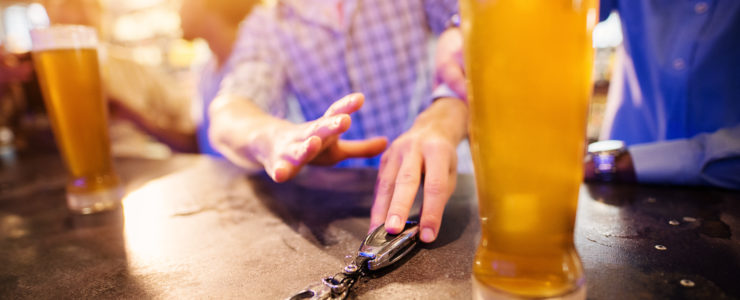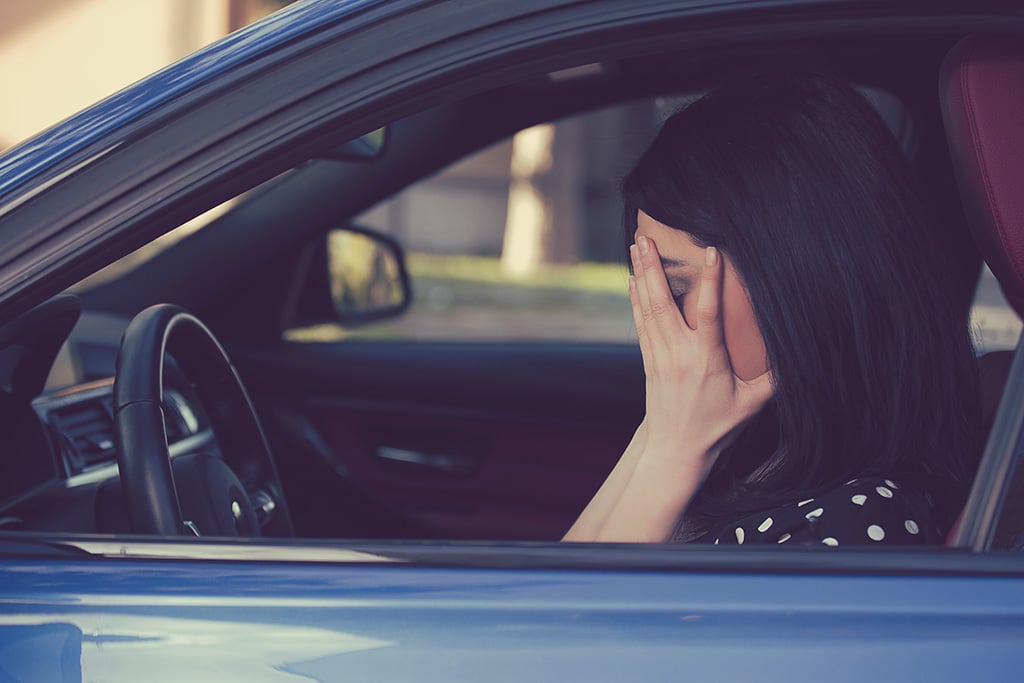
Getting arrested for a Driving Under the Influence (DUI) charge can be a daunting experience, especially if it is your third offense within a seven-year period. In Nevada, the law treats a third DUI offense very seriously, categorizing it as a felony with severe penalties.
Even though there weren’t any accidents or injuries involved, a third DUI conviction can have long-lasting consequences on your life.
In this article, we go into the details of what constitutes a third DUI offense in Nevada, the penalties you may face, common defenses, plea bargaining, and how a criminal attorney can help you navigate through this complex legal landscape.
If you or a loved one is facing a third DUI charge, it is crucial to seek legal assistance as soon as possible. Ticket Busters can help. Our team of experienced attorneys specializes in DUI defense and has a proven track record of successfully defending our clients against these charges. Contact our office today for a free consultation.
Understanding a Third DUI Offense in Nevada
A third DUI offense in Nevada occurs when you have been arrested for DUI and already have two prior DUI convictions within the past seven years. DUI is defined as driving while impaired by drugs or alcohol, having a blood alcohol content (BAC) of 0.08% or higher, or having illegal quantities of certain drugs in your system. The time frame for determining prior offenses is calculated from the date of the first DUI arrest to the current arrest date.
For example, if you were arrested for a DUI in January 2016 and again in March 2019, and then arrested for a third DUI in December 2020, this would be considered a third offense because the second arrest was within seven years of the first.
On the other hand, if you were arrested for a DUI for the first time in January 2016 and again in March 2019, but then arrested for a third DUI in April 2022, this would only be considered a second offense because the second arrest was outside of the seven-year period.
The Severity of a Third DUI Offense in Nevada
Unlike the first and second DUI offenses, which are treated as misdemeanors, a third DUI offense in Nevada is considered a Category B felony. Even if no accident or injuries occurred, the severity of the charges and potential penalties escalate significantly with a third DUI conviction.
It’s important to note that you must be convicted for the charges to apply, not just arrested or charged.
Penalties for a Third DUI Offense
If you are convicted of a third DUI offense within a seven-year period, you can be sentenced to one to six years in jail. Along with a mandatory prison sentence, you could also face:
- Fines ranging from $2,000 to $5,000
- Mandatory participation in an alcohol/drug dependency evaluation and possibly rehab
- Attendance at a Victim Impact Panel
- A three-year driver’s license revocation
- Installation of a breath interlock device in your vehicle for up to three years
In addition to this, you can expect your auto insurance rates to skyrocket as you will now be required to get SR-22 insurance, which is considered high-risk insurance.
Implications on Your Driving License
A DUI third offense carries a three-year driver’s license revocation in Nevada. However, it might be possible to resume driving earlier with an ignition interlock device installed in your car. This device requires you to blow into it before driving the vehicle and will not start if it detects alcohol.
Common Defenses Against a Third DUI Offense
While Nevada prosecutors are prohibited from reducing or dismissing DUI charges without adequate evidence, an experienced DUI defense attorney can argue that the evidence is too weak to support a conviction. Some common defenses include:
Challenging the Probable Cause for the Initial Stop
The Fourth Amendment of the United States Constitution protects citizens from unreasonable searches and seizures. This means that police officers need probable cause to pull you over in the first place. For example, swerving while driving is not enough to justify a stop unless there are other indications of impairment.
If your attorney can prove that there was no valid reason for the initial stop, any evidence collected after the stop may be thrown out.
Highlighting Mistakes Made During Field Sobriety Tests
Field sobriety tests are not always reliable indicators of impairment. The police need to be trained properly, and the tests must follow strict guidelines for them to be admissible in court.
For instance, the individual being tested could have a medical condition such as an ear infection or neuromuscular disorder, which affects their balance and mimics impaired motor skills, leading to an unjust DUI charge.
Environmental factors like uneven road surfaces, poor lighting, or inclement weather could affect an individual’s performance on the FSTs, thus skewing the results. It’s also crucial to mention the fact that the nervousness and stress of being pulled over by the police can result in poor performance in these tests, even for a completely sober individual.
If any errors or inconsistencies are found during the administration of these tests, they can be challenged in court.
Medical Conditions that Affect BAC Results
Certain medical conditions such as GERD (gastroesophageal reflux disease), acid reflux, and heartburn can result in a higher BAC reading. These conditions cause stomach contents to flow back into the mouth, potentially contaminating breathalyzer results.
Similarly, individuals with diabetes or who are on certain medications may have elevated blood sugar levels, leading to false positives on breathalyzer tests.
Demonstrating Faulty Equipment
Breathalyzer and blood test equipment need to be regularly calibrated and maintained to ensure accurate results. If the equipment used in your case was not properly maintained, or if there is evidence of faulty equipment, this can significantly weaken the prosecution’s case against you.
Expired Certifications
Breathalyzer and blood test technicians need to have valid certifications to administer these tests. If their certification has lapsed or expired, the evidence collected through these tests may not be admissible in court.

Plea Bargaining and DUI Court
The plea bargaining process in Nevada DUI cases can sometimes result in charges being reduced to reckless driving. However, it’s critical to note that such outcomes are not guaranteed and depend heavily on the specifics of the case and the skill of your defense attorney.
Another option for defendants is getting accepted into Felony DUI Court, also known as the Serious Offenders Program. This is an intensive three-to-five-year rehabilitation program that, upon successful completion, could result in your DUI-third charge being reduced to a second offense DUI, which is a misdemeanor in Nevada.
Record Sealing
In Nevada, the criminal records of individuals convicted of a third-time DUI, which is now considered a felony, cannot be sealed.
Your best bet when facing a third DUI offense is to seek the help of a skilled and experienced DUI defense attorney who can fight on your behalf and potentially reduce or dismiss charges. With severe penalties and long-term consequences, it’s essential to take these cases seriously and seek expert legal counsel immediately.
Remember, a charge that is dismissed or reduced to a misdemeanor can save you from significant financial losses, jail time, and damage to your reputation. Time is of the essence and every minute counts. Don’t wait, contact a DUI defense attorney today. Your future and your driving privileges are at stake.
The Impact of a Third DUI Offense on Personal and Professional Life
A third DUI conviction goes beyond legal consequences; it permeates every aspect of your life. Professionally, you could lose your job, especially if your position requires driving or a clean criminal record. Future job prospects can also be significantly affected as many employers conduct background checks.
Financially, the impact is severe. Fines, court costs, increased insurance rates, as well as mandatory alcohol or drug education programs, can quickly add up. The cost of installing an ignition interlock device and maintaining it further strains your finances as these are mandatory and self-funded.
On a personal level, the stigma associated with a DUI conviction is far-reaching. Relationships with family and friends may be strained. If you have children, a DUI conviction may impact custody agreements or visitations.
Your mental and emotional health can also suffer. The stress of dealing with a court case, financial implications, and potential job loss can lead to anxiety or depression.
The Importance of Legal Representation
Having strong legal representation is essential when battling a third DUI charge. An experienced DUI attorney can challenge the evidence, argue for reduced charges, and advocate on your behalf in court. They can also guide you through the complexities of the legal system and help you understand your rights and options.
How Ticket Busters Can Help
Dealing with a third DUI offense in Nevada can be overwhelming, but you don’t have to face it alone. With the expertise of Ticket Busters, a Las Vegas-based law firm specializing in DUI cases, you can navigate the complex legal landscape with confidence.
If you’ve been arrested for a third DUI in Nevada and are looking for reliable, accessible, and empathetic legal assistance, contact Ticket Busters today for a free case review.
Our team of skilled DUI defense attorneys has a proven track record of success in handling DUI cases. We are dedicated to providing personalized and aggressive representation to our clients, fighting for the best possible outcome. Don’t wait, call our office today and let us help you fight your third DUI charge.



